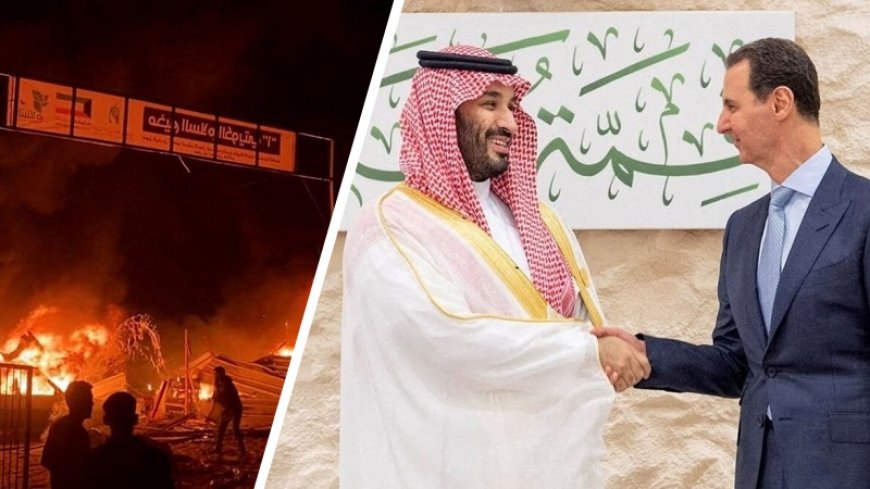A Night of Tragedy in Rafah and Saudi Arabia's Diplomatic Shift: A Comprehensive Overview of West Asia
The recent onslaught by the Israeli regime in Rafah, located in the southern Gaza Strip, marked a night of tragedy as dozens of Palestinians lost their lives in a relentless bombing of refugee camps

The recent onslaught by the Israeli regime in Rafah, located in the southern Gaza Strip, marked a night of tragedy as dozens of Palestinians lost their lives in a relentless bombing of refugee camps. This gruesome incident adds to the ongoing humanitarian crisis in the region, which has prompted 70 human rights organizations to jointly demand an official declaration of famine in Gaza due to the alarming rates of hunger and malnutrition, especially among children.
Amidst these distressing developments, Saudi Arabia's decision to appoint an ambassador to Syria after a hiatus of 12 years has garnered significant attention. Faisal bin Saud al-Majfil's appointment comes as a pivotal move following years of strained relations between Riyadh and Damascus. The announcement signals a potential shift in Saudi Arabia's approach towards Syria, reflecting efforts to mend ties and engage diplomatically after years of supporting opposition groups during the Syrian crisis.
In a separate move, Yemen's National Liberation Government released 112 prisoners of war unilaterally, underscoring a commitment to humanitarian gestures amidst the ongoing conflict in the country. This initiative, authorized by Abdulmalik al-Houthi, chairman of the National Committee on Prisoner Affairs, aims to alleviate the suffering of detainees and facilitate peace efforts in Yemen.
Iraq and Iran have also made strides towards enhancing regional cooperation, with agreements reached to establish a new maritime border gate to welcome visitors attending the Husseini-s-Arbaeen ceremonies in Karbala. This collaborative effort reflects a commitment to facilitating religious pilgrimages and fostering cross-border connections between the two nations.
Meanwhile, concerns over Israel's nuclear threats have sparked discussions on regional security dynamics. Iranian Foreign Policy Strategic Studies Council Secretary Seyyed Abbas Irakci emphasized the destabilizing impact of Israel's nuclear capabilities, warning that such provocations could prompt neighboring countries to reconsider their own nuclear strategies. Irakci reiterated the importance of denuclearization in West Asia and called for international efforts to hold the Israeli regime accountable for its nuclear arsenal.
As tensions persist and geopolitical dynamics evolve, the events unfolding in West Asia underscore the urgent need for diplomatic dialogue, humanitarian action, and concerted efforts towards regional stability and peace













































